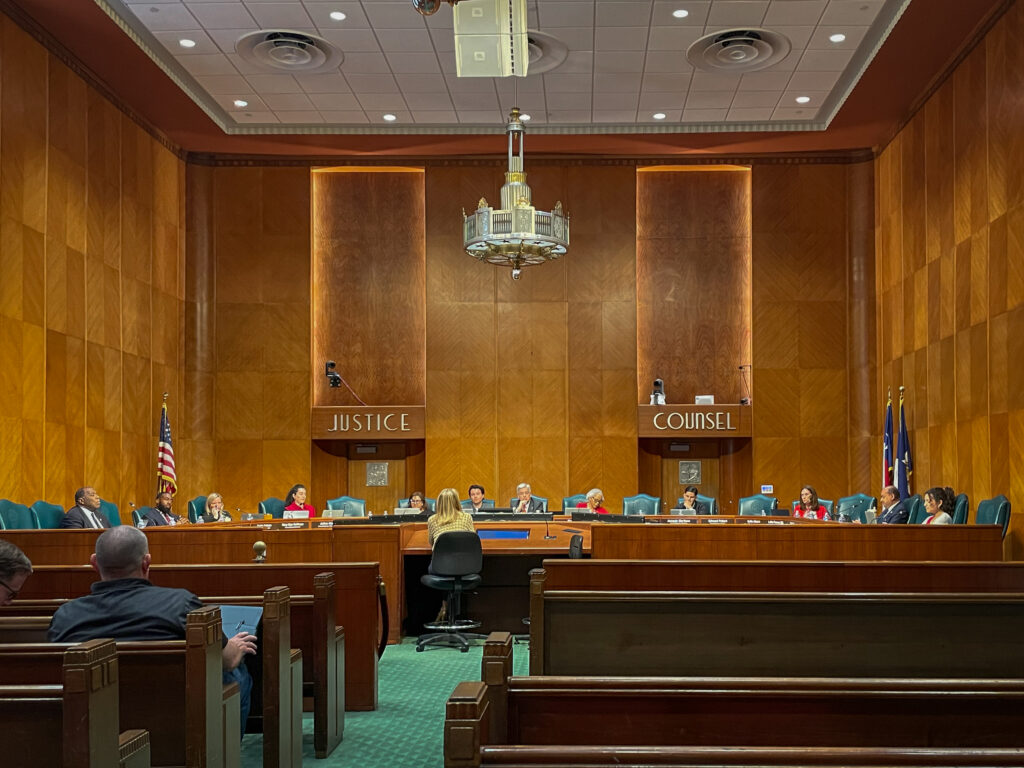Armando Leal, Monsieur’s Media Specialist
The Houston City Council is reviewing potential amendments to the city’s short-term rental ordinance, including updates to licensing, enforcement, and neighborhood compatibility.

Howdy Houstonians!
After months of discussion, Houston’s STR Ordinance (which can be read about here) was recently put up to a vote on March 26th, 2025. Before a decision could be made, however, council members raised concerns about the ordinance’s clarity, enforcement process, and overall implementation. As a result, the vote was delayed to allow time for potential amendments.
This takes us to April 7, when council members gathered once again to discuss a new set of proposed amendments. Below is a summary of each amendment, along with the current language, intended purpose, and concerns raised during discussion. These amendments are still being reviewed and may be revised, removed, or adopted into the final version of the ordinance ahead of the next vote, scheduled for April 15.
Amendment 1 – Who Registers for the STR
This amendment won’t change much for how most STRs are registered, but it helps clarify who’s responsible if something goes wrong. From a legal standpoint, it outlines who holds the burden when issues arise. Two versions are being considered, each with slightly different wording.
In amendment 1(a), the responsibility would be placed on the operator (who may be the owner) of the property:
- “Applicant means the operator of a short-term rental who applies for a certificate of registration…”
- “Each operator of a short-term rental… shall register their short-term rental with the city…”
On the other hand, amendment 1(b) separates the two individuals and states that the responsibility would be placed on the owner OR operator.
- “Applicant means the owner or operator of a short-term rental…”
- “Each owner or operator… shall register their short-term rental with the city…”
This difference may seem minor, but the implications are significant. If the burden falls only on the operator, as in 1(a), it simplifies accountability but raises concerns about leaving property owners out of the process. Amendment 1(b) offers more flexibility and accountability by naming both parties, though critics argue it could lead to finger-pointing if a violation occurs.
Amendment 2 – Stricter Penalties for Repeat Violators
This amendment proposes stronger enforcement tools for dealing with repeat violators, specifically those who operate multiple STRs within the same multifamily property (such as apartment complexes).
- “The Director may revoke all certificates of registration of an owner/operator of multiple units in a multifamily property if 25% or more of the owner/operator’s total certificates in the multifamily property have been revoked under this section.”
The goal of this amendment is to prevent repeat violators from continuing to operate multiple STRs within the same property. Instead of revoking registrations one by one, the city could revoke all of them at once if 25% or more are in violation.
Still, concerns were raised about fairness, as the amendment primarily targets multifamily owners and businesses. In order to avoid being unduly burdensome on multifamily operators, there’s discussion about shifting from a percentage to a fixed number (e.g., two or more revoked units), but the language is still being refined.
Amendment 3 – STR Cap in Multiunit Complexes
Arguably the most controversial proposal, Amendment 3 aims to place a hard cap on how many STRs can exist within a multiunit residential property.
- “No more than one-fourth (25%) of the total number of units in a multi-unit residential property… shall be registered as short-term rentals.”
While the intent is to reduce the number of STRs in multiunit properties, a major challenge is determining who gets the 25%. If a building has 20 units, who decides which five can operate as STRs? A blanket limit like this could also hurt single-unit STR owners competing against larger multi-unit operators in the same complex.
Due to its complexity and controversy, there’s a strong indication that Amendment 3 may ultimately be scrapped or absorbed into the revised Amendment 2.
Amendment 4 – Required Human Trafficking Training
This amendment would require all STR applicants and their employees to undergo training to recognize signs of human trafficking.
- “As part of the application process, the applicant and all its employees shall be required to receive training on recognizing human trafficking.”
Similar training is already required in Houston’s hotel and motel industry, and this proposal appears to have broad support.
Amendment 5 – Excluding HAR from STR Ordinance
This amendment clarifies that the Houston Association of Realtors’ Multiple Listing Service (HAR) is not considered a short-term rental platform under the ordinance.
- “Platform” is defined so as not to include the Houston Association of Realtors Multiple Listing Service, since no short-term rentals are rented directly on it.”
The sole purpose of this amendment is to ensure HAR is excluded from regulation, as it does not facilitate STR bookings. No other platforms are affected.
Final Takeaways Ahead of the Vote
As the April 15 vote approaches, council members continue to review each proposed amendment. Here’s where things currently stand:
- Amendment 1 is more of a legal clarification, focused on determining who holds responsibility when violations occur.
- Amendments 2 and 3 are being further revised, as they directly impact how STRs are owned, managed, and regulated, particularly in multiunit properties. There’s also a strong possibility that Amendment 2 may absorb or replace Amendment 3 entirely.
- Amendments 4 and 5 are expected to be added to the ordinance, as they introduce human trafficking training (already required in the hotel industry) and clarify that HAR is not subject to STR platform rules.
At Monopoly Property Services, we stay up to date with every city council meeting, proposed amendment, and ordinance revision—so you don’t have to. When the ordinance passes, our STR Ordinance Compliance consulting service will be ready to get your STR certified quickly and correctly. To learn more about how these changes could affect your short-term rental and how to stay compliant, visit our Property Pulse page and check out our latest blogs and updates.
Subscribe to Property Pulse to stay updated on timelines and important developments regarding this ordinance.
